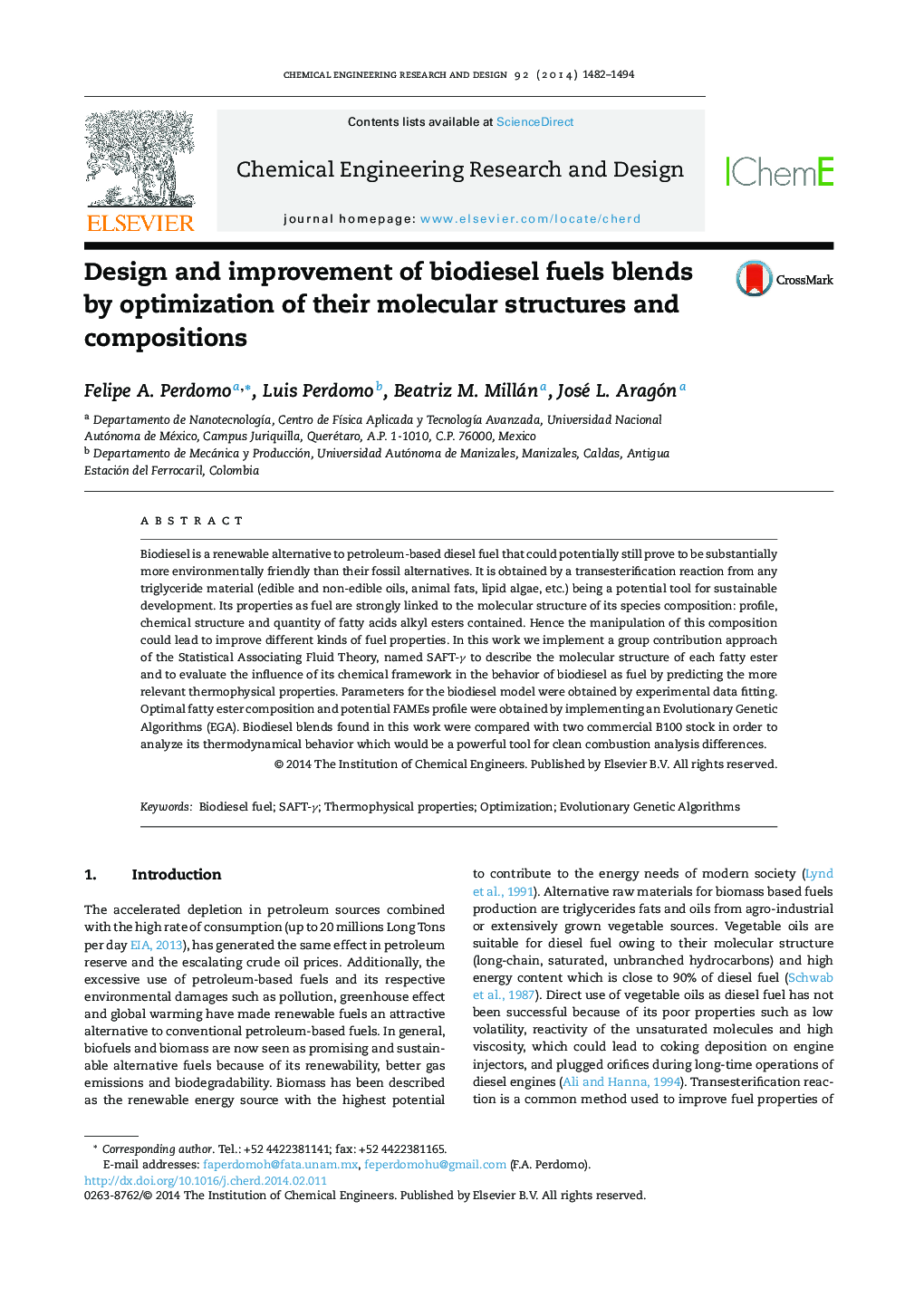| Article ID | Journal | Published Year | Pages | File Type |
|---|---|---|---|---|
| 620671 | Chemical Engineering Research and Design | 2014 | 13 Pages |
Abstract
Biodiesel is a renewable alternative to petroleum-based diesel fuel that could potentially still prove to be substantially more environmentally friendly than their fossil alternatives. It is obtained by a transesterification reaction from any triglyceride material (edible and non-edible oils, animal fats, lipid algae, etc.) being a potential tool for sustainable development. Its properties as fuel are strongly linked to the molecular structure of its species composition: profile, chemical structure and quantity of fatty acids alkyl esters contained. Hence the manipulation of this composition could lead to improve different kinds of fuel properties. In this work we implement a group contribution approach of the Statistical Associating Fluid Theory, named SAFT-γ to describe the molecular structure of each fatty ester and to evaluate the influence of its chemical framework in the behavior of biodiesel as fuel by predicting the more relevant thermophysical properties. Parameters for the biodiesel model were obtained by experimental data fitting. Optimal fatty ester composition and potential FAMEs profile were obtained by implementing an Evolutionary Genetic Algorithms (EGA). Biodiesel blends found in this work were compared with two commercial B100 stock in order to analyze its thermodynamical behavior which would be a powerful tool for clean combustion analysis differences.
Related Topics
Physical Sciences and Engineering
Chemical Engineering
Filtration and Separation
Authors
Felipe A. Perdomo, Luis Perdomo, Beatriz M. Millán, José L. Aragón,
